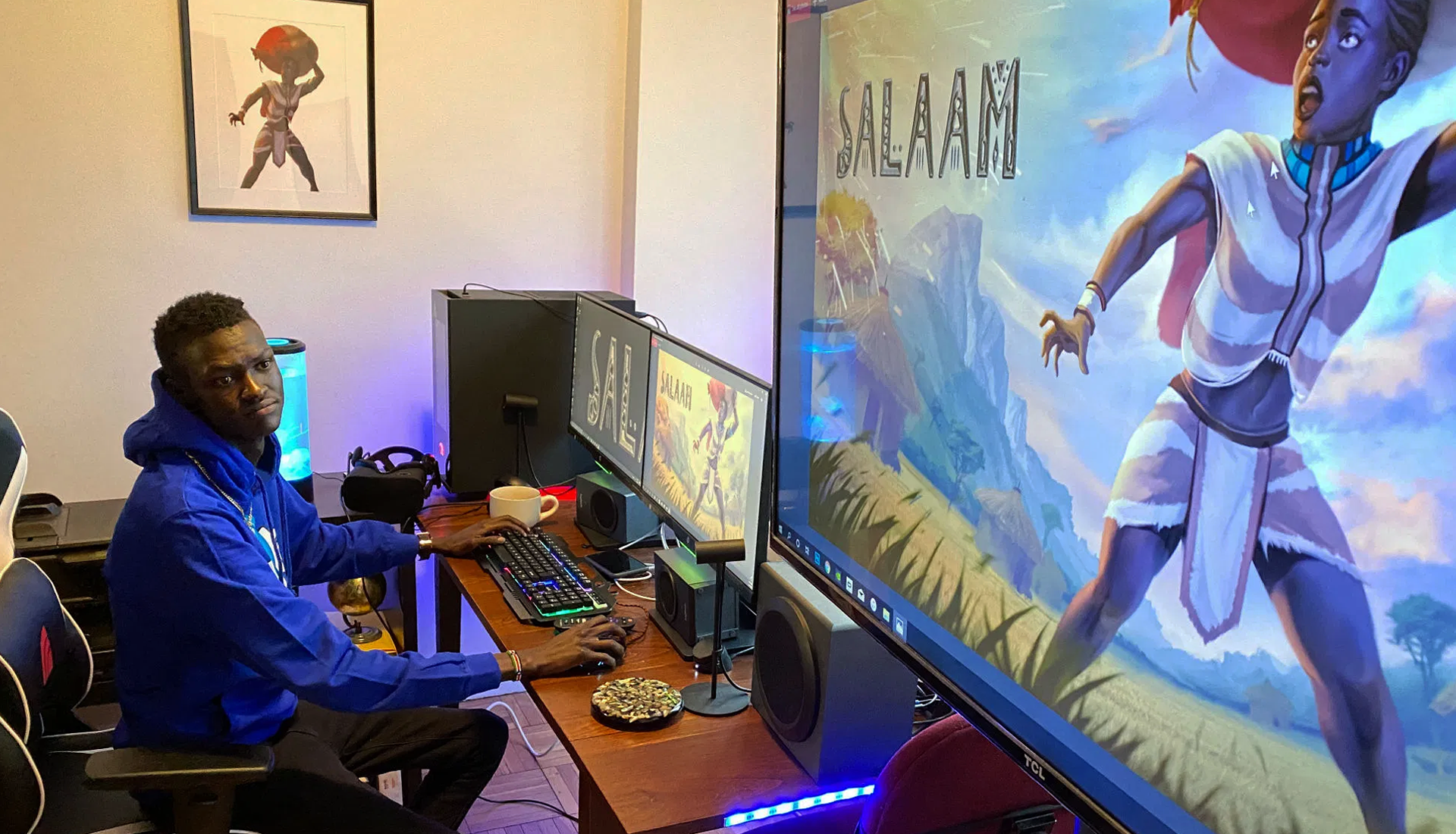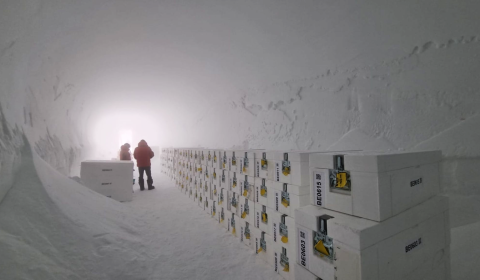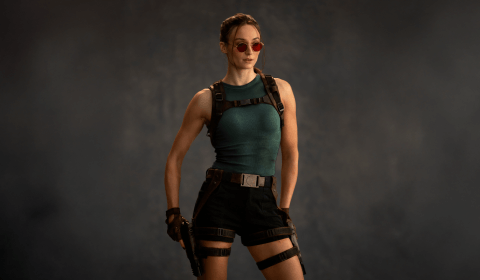Having spent 22 of his 24 years in a refugee camp, the inspiring Luyal Mayen is now educating the world on the plight of his people through his game Salaam.
Luyal Mayen endured a brutal start to life. One of 680,000 displaced by a relentless civil war spanning decades in South Sedan, Mayen was born en route to a refugee camp in Northern Uganda and grew up within its borders.
With no educational opportunities to speak of, a meagre food supply, and crowded living conditions, he spent a solitary 22 years dreaming up ways to inspire and educate the Western world about the plight of refugees – of which there are 2.6 million in communal sites right now. At the age of 24, Mayen is finally on the cusp of fully realising that lifelong ambition.
Now, as the studio head of his own game development team in Washington, DC Junub Games, Mayen is putting the finishing touches on a flagship game to spread his message of ‘peace and conflict resolution’.
Entitled Salaam, which translates to ‘peace’ is Arabic, Mayen has created a high-tension running mobile game to encapsulate the feeling of having to flee from conflict, to survive by collecting the barest necessities of medicine and food, and to stop communities from being destroyed.
He hopes to profoundly impact the next generation of world leaders and encourage greater priority for victims of circumstance through the popular medium of video games. Speaking to News 18, he said ‘When they’re making policy, they’ll already understand what refugees face, just through playing my game. That’s actually how we change the world and how we can be able to use the industry for good.’



















